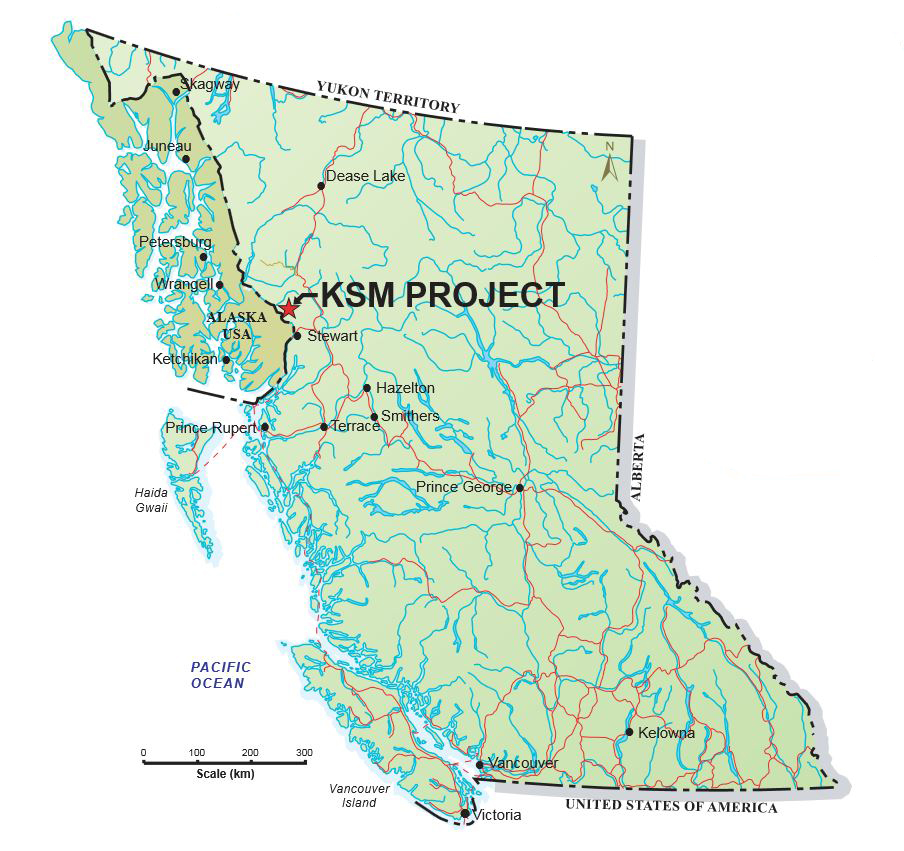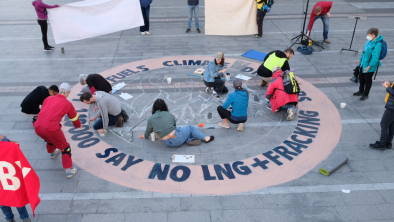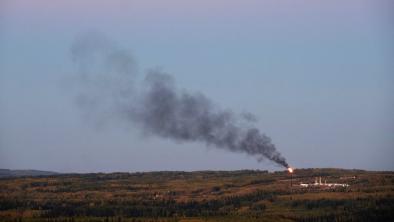Water worries over KSM mine persist
Thursday, August 07, 2014
Petersburg Pilot

The Kerr-Sulphurets-Mitchell (KSM) Mine being proposed in Canada's British Columbia province is nearing its final stages, with the fourth and final comment period on the project's environmental assessment coming to a close Aug. 20.
The first of five major mining sites planned for development along transboundary waters, the sheer scale of the KSM and the rapidity of development in the region have been causing consternation among Alaska's Native communities, fishing and travel industry associations, and environmental groups.
The British Columbia Environmental Assessment Office's report on the KSM copper, gold and molybdenum mine, has concluded that mitigation measures currently proposed for the site are adequate for protecting Alaskan waters and fish. The applicant, Seabridge Gold Inc. was notified of the decision last week, and final approval of the project is to be considered next at Canada's federal level.
A news release put out by the United Tribal Transboundary Mining Work Group last week says southeastern tribes are not confident in these findings and are pushing for Canada to conduct a more rigorous panel review of the proposed mine as the public comment period draws to a close.
"Everything has potential to not work as planned, especially when you're dealing with that kind of scale," said John Morris Jr ., the work group's co-chair. "You've got to look at that potential impact."
"Stakeholder-wise and as someone who's pretty invested in wild salmon ... I'm very concerned," said Lindsey Bloom, a fisheries consultant for conservancy group Trout Unlimited and Juneau-based commercial fisherman. Because of its size, she said KSM caused her particular concern.
Already a seismically active region, the recent breach at the Mount Polley Mine near Likely, B.C ., has also done little to quell fears of an ecological disaster. A dam retaining a tailings pond for that mine burst on Monday, releasing about 2.6 billion gallons of water and 5 million cubic yards of metals-contaminated slurry into surrounding water systems.
Although the breach has by now been reported as stabilized, communities have been advised to avoid using water from the Quesnel and Cariboo river systems. There is no indication yet what the extent of the damage will be.
"I'm really sad for those fishermen," Bloom said. "They've had this tragic and catastrophic failure," at a time she explains should have been their best harvest of the year. "It's devastating."
Though not against the development or industry in general, Morris is concerned at the swiftness and scale of Canada's plans. For instance, the waste retention dams at KSM alone will each be over 700 feet tall – bigger than the Hoover Dam – and will be made of waste rock rather than concrete.
"It's not going to last forever, you know?" Morris observed. "If one goes, it's going to happen again to another one."
The National Congress of American Indians also passed a resolution earlier this summer requesting that the United States government engage more directly with Canada over proposed mining operations in its British Columbia province.
The resolution takes issue with risks to the Taku, Stikine and Unuk rivers posed by five large, open-pit mines being developed further upstream. For the Stikine River, this includes the Galore Creek, Schaft Creek and Red Chris mines. The KSM would be located near the headwaters of the Unuk.
According to the resolution, "Southeast Alaska communities downstream from the mines will face negative impacts and risks to clean water, salmon and hooligan runs, wildlife and livelihoods, yet will receive no economic benefit from the mines."
Public comments for the KSM can still be submitted by post to KSM Project, Canadian Environmental Assessment Agency, 410-701 Georgia Street West, Vancouver B.C. V7Y1C6. Comments can also be sent by email to KSM.Project@ceaa-acee.gc.ca. This is the fourth and final comment period on the KSM project's environmental assessment, and all comments must be received by Aug. 20 to be considered.
Additional information on the project can be found at http://www.ceaa-acee.gc.ca/050


